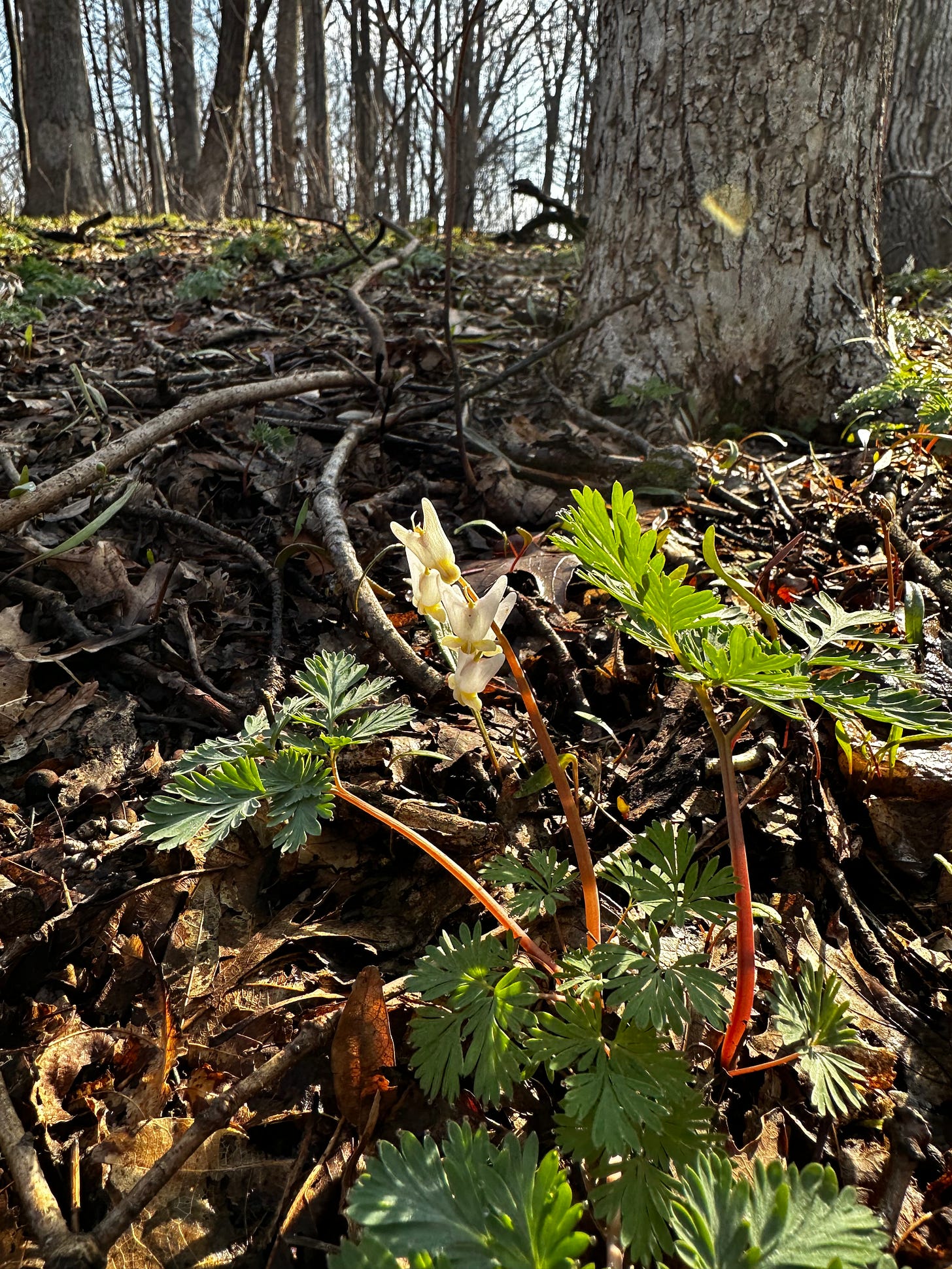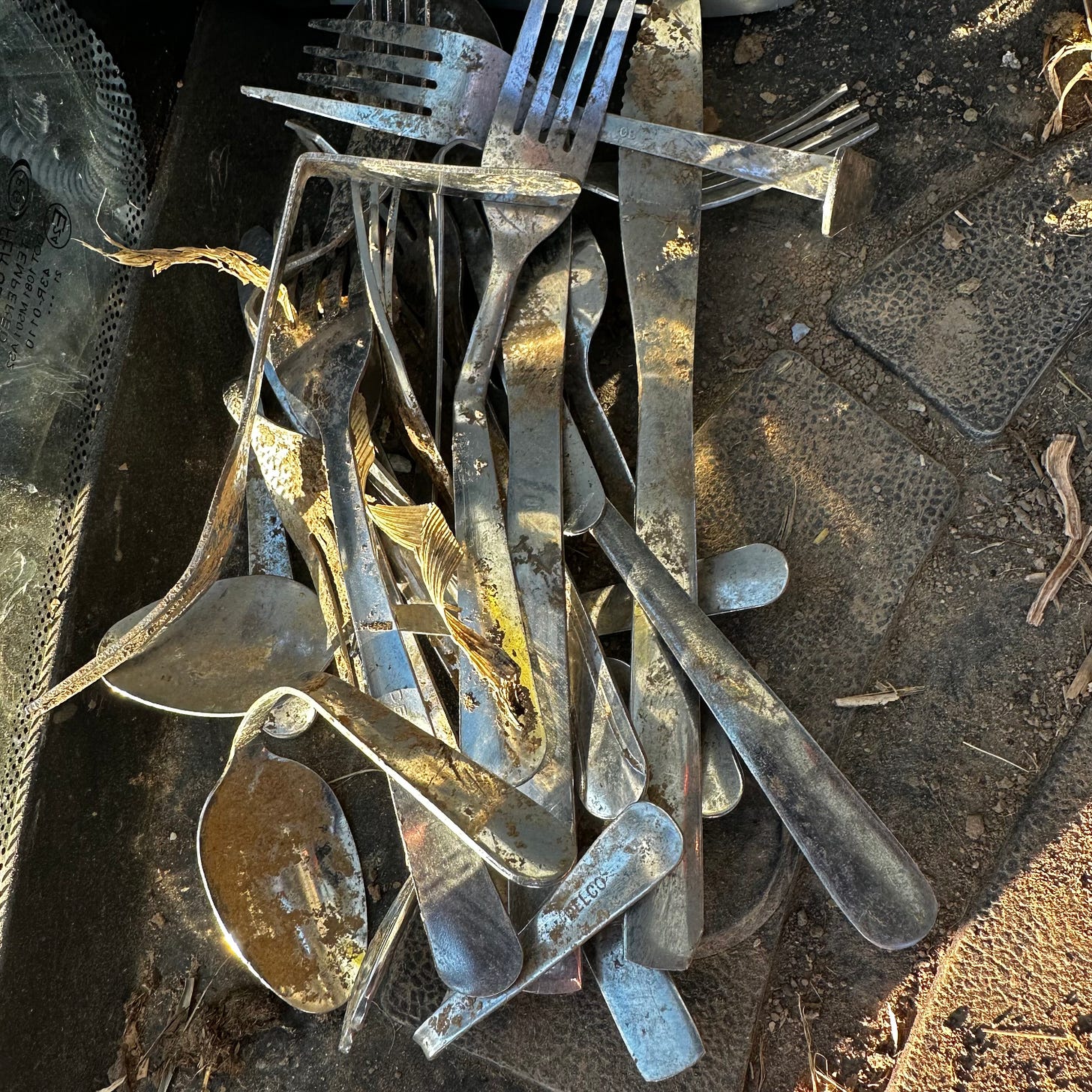The hay field is planted, the lambs and kids are growing, and we’re getting ready to move everyone out to pasture. We have one more pasture to reseed, but we got our disc figured out at least. Spring is here on the farm!
If you’ve been following along on social media, you may have been perplexed as I shared my frustration at picking up metal forks, knives, and spoons from our freshly planted hay field. I thought I’d take us all on a short journey into the not so distant past to explain why we’re finding a bunch of forks and knives in the middle of a farm field.
Many years ago, Dad was running a CSA (community supported agriculture), growing and selling vegetables for a regular set of customers. For any of you reading along that were here for the CSA - thanks for sticking with us all these years! One of those customers was Augustana College (which is also where my parents went to college). Dad developed a relationship with Augustana and somehow the idea grew to take the compostable food waste from the cafeteria back to the field, closing the loop. This was huge! The fact that they managed to succeed at creating a system to do all of this, was monumental (part of why Dad ended up earning a Distinguished Alumni award in 2009!)
So why, when we fast forward about 12+ years am I cursing the sky? Innovation doesn’t mean we get things perfect right away. While the compost program was successfully, they learned (or at least I’m saying we have now learned), there is no way to make all the cafeteria students perfectly sort their garbage. Compost in one bin, non-compostable waste in another, dishes in the last spot. Inevitably plastic waste and - as you’ve now seen - a decent pile of silverware ended up in the compost bin, which was all dumped in a spot on our farm that is now back to being a hay field.
Does that mean the whole thing was a failure? Frustrated as I am to have to pick all this up now, I can’t say it was a failure. Innovation is necessary to learn. Trial and error is a necessary process of innovation. If the program continued today, I would find ways to filter the compost after it had time to decompose. Maybe others have done this already. When my family left North Liberty, Iowa to move back to the farm, we left behind a curbside compost program. That’s right, we had 3 bins, one of which carted away all our compostables every week. Innovation begins somewhere, what we do when the first try doesn’t go as planned is the important part. Failure does not mean we should give up.
Today, our chickens take care of a lot of our family compost. They love vegetable scraps and make quick work of moving it the next step toward rich, nutrient dense soil. We’re grateful for their part in closing our small loop to reduce waste and regenerate the soils on our farm.
We appreciate your support for our family, sustainable fiber, and oak savanna restoration.







You and your family are amazing! Thanks for sharing!